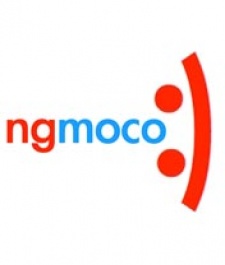As with the general's plan for the battlefield, so with the CEO's business plan for his company.
The first shot, and the first sale, are likely to turn those abstract pieces of paper and spreadsheets into nothing less than junk as your army, or your firm, gets on with the serious and dynamic business of killing the opposition, or making money.
To that extent, it's no surprise that US iOS publisher ngmoco has ended up striding in a very different direction compared to the one it started out in.
Once upon an investment
Back in 2008, ngmoco - which was formed by some young (technically middle-aged) executive guns from EA's Los Angeles studio - was the App Store's premium games company.
It had experienced staff. It has venture capitalists' cash. Heck, it even had proper offices in San Francisco. It hooked up with creative developers, publishing a string of successful games including signature releases such as Hand Circus' Rolando and The Muteki Corporation's Topple.
It hit a high point during Apple's Worldwide Developers Conference in June 2009, when its, and developer Rough Cookie's, Star Defense was highlighted as part of a Steve Jobs' keynote. It was one of the first games to support the iPhone 3.0 OS, including multiplayer, updates and micro transactions.
Other games it showcased during the event included first person shooter Eliminate, Nintendogs clone Touch Pets Dogs, and the much anticipated Rolando 2
Times they are a'changing
But even then, it was becoming clear that premium games weren't performing as well on the App Store as before.
At $5.99, Star Defense wasn't that expensive, but compared to a wave of 99c success stories such as Flight Control and Pocket God, which were starting to sell millions, it flopped.
What's important to note is that it wasn't the fact that games like Star Defense weren't great: it was perhaps ngmoco's best reviewed game. However, the App Store audience, especially the fast growing younger iPod touch audience, wasn't prepared to spend that sort of money on any game, and especially not when hours of fun were available for 99c.
This was the inflection point for ngmoco's CEO Neil Young and inflect he did. Surprising everyone - especially ngmoco's backers, who had already given it $15 million - he turned the company's business model on its head.
Quality games remained important of course, but Young realised that giving away stuff for free as was already happening on Facebook - especially stuff that connected you to your friends, using ngmoco's Plus+ social platform - was going to be the only way to make money if you were a games company with more than 10 staff, but unlike EA Mobile or Gameloft, less than 1,000.
Cash in is king
In addition, unlike most developers on iOS, and even some publishers, it should never be forgotten that ngmoco was founded with the express purpose of making a lot of money for its founders and investors, most likely by being sold to a large company.
It was never a couple of coders in a back bedroom, trying to make their ideal game. It was about building an "EA for the mobile generation", and that meant following the money.
The result was a wave of new freemium games launched in autumn 2009, in which you bought virtual items to improve your experience, whether Mojo to make things happen faster in We Rule, customisation for your dog in Touch Pets Dogs or power cells to ensure your games ranked in Eliminate.
Certainly successful in terms of downloads - 50 million by September 2010 - even if ngmoco was tight lipped about revealing any daily user figures, this approach has been backed by classic start up business development.
Ngmoco has bought other developers - Miraphonic, Freeverse and Stumpdown - to bulk out its internal development, while continuing to raise more cash to cover its increasing burnrate and future investment - $30+ million in 2010.
And it's the result of this activity that Japanese publisher DeNA has stepped into play with its $403 million ($303 million in stocks and shares, and up to $100 million in earnout) deal.
Buyer's regret?
Of course, the history of such mergers and acquisitions is that companies almost always overpay in fundamental terms - remember EA Mobile's $680 million purchase of JAMDAT, which resulted in a $368 million write down a couple of years later.
Yet considering DeNA's is likely to make $500 million in profit this year, and desperately needs scale in the US, the deal perhaps isn't so far fetched as it first appeared.
Either way, ngmoco's founders and shareholders can look back on a job well done, and one that's likely to feature in plenty of MBA case studies in the following months.
For an alternative view on the activity of ngmoco, check out Pocket Gamer's Opinion: The rise and fall of ngmoco.
Opinion: The fall and rise of ngmoco
How the darling of iPhone gaming found its way























